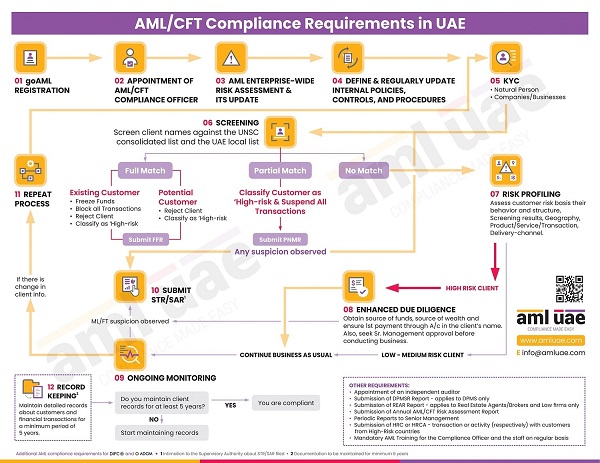Understanding the Predicate Offences to prevent money laundering
No significant financial crime can be executed without resorting to the smaller crimes, as generally, there exists a network of crime to drive another crime or act as a shield to one another. Various offenses are also part of more significant offenses like money laundering and terrorism financing and help them in a certain way either to achieve the purpose of such offenses or to help the offender from being caught after committing such offenses. These kinds of offenses are known as Predicate offenses.
Predicate Offence meaning with example
Simply put, a predicate offense is an illegal activity that is the foundation or the first crime in the chain of another crime. For example, in money laundering, an illicit act of tax evasion can be construed as a “predicate offense,” as the illegal proceeds generated from tax evasion would be laundered. Also, check out: Unraveling Predicate Offenses Guide – The Key to Preventing Money Laundering

What is Predicate Offense under UAE AML/CFT regulations?
What is a predicate crime?
Under the UAE AML/CFT regulations, the phrase “Predicate Offense” has been defined as under:
Predicate Offense Definition:
Any act constituting a felony or misdemeanor under laws of the UAE, whether committed inside or outside the UAE, when such act is punishable in both countries – UAE and the other country where the crime has been committed.
Further, the definition of the term “Crime” in the UAE AML/CFT regulations includes money laundering and related predicate offenses.
What activities will be considered Predicate offenses?
Predicate offences vary between countries and are usually codified in a country’s criminal code, considering the country’s economy and market; hence, It’s a bit difficult to carve out a general list of predicate crimes in money laundering.
To include the broadest range of predicate offenses, the FATF has provided that countries should apply the crime of money laundering to all serious offenses. 21 Predicate offenses have been classified by FATF (Financial Action Task Force). These all are criminalized internationally. Note that this list is not a comprehensive list of predicate offenses, as there may be any other act of misdemeanors or felonies, apart from what is mentioned hereunder, which aids the laundering of funds and, thus, be considered as predicate offenses. However, the list provides a good understanding of what is a predicate offence to anyone who is asked to define a predicate offence.
The 21 Predicate offenses of money laundering: FATF Predicate Offence Examples-
- terrorism, including terrorist financing
- illicit arms trafficking
- participation in an organized criminal group and racketeering
- trafficking in human beings and migrant smuggling
- sexual exploitation, including sexual exploitation of children
- tax crimes (related to direct taxes and indirect taxes)
- illicit trafficking in stolen and other goods
- corruption and bribery
- forgery
- counterfeiting currency
- insider trading and market manipulation
- environmental crime
- murder, grievous bodily injury
- kidnapping, illegal restraint and hostage-taking
- robbery or theft
- smuggling; (including in relation to customs and excise duties and taxes)
- illicit trafficking in narcotic drugs and psychotropic substances
- extortion
- fraud
- piracy; and
- counterfeiting and piracy of products.
For example, a public officer abused public office, resorted to corruption, and used these illegally obtained funds to buy gold and diamond jewellery. In this case, bribery/corruption would be treated as the predicate offense, and the conversion of the funds into precious metals and stones would be the actual money laundering crime (act to conceal the source of proceeds).
Thus, for predicate offenses, it can be said that the crime of money laundering would not have been possible had there been no funds from the predicate offense of corruption/bribery.
What is a Predicate Offence in Money Laundering?
Money laundering involves the act of disguising the source of money generated from a criminal activity. The criminal activity referred to here is nothing but a predicate offence resulting in one generating proceeds of crime. A predicate crime includes various illegal activities. Say, human trafficking is a predicate offence.
UAE National Risk Assessment (NRA) 2018 and Predicate Offences
The UAE National Risk Assessment (NRA) conducted in 2018 considered the money laundering threat of FATF 21 predicate offenses and identified the following predicate crimes as posing the most likely threats of money laundering:
- fraud;
- counterfeiting and piracy of products;
- illicit trafficking in narcotics, and
- professional third-party ML
Further, various predicate crimes like insider trading and market manipulation, robbery and theft, illicit arms, forgery, smuggling and tax crimes were also assessed for their ML threats.
Why do Predicate Offences matter in AML?
Money Laundering is not an act done in isolation. There is always an underlying criminal activity that results in illicit gains and serves as the basis for money laundering.
If predicate offences are controlled, it will naturally result in control over money laundering, and hence, Governments across the world have criminalised predicate offences to counter ML/TF.
Why is it essential to fight predicate offense?
As mentioned above, predicate offenses are the underlying crime that generates the motive – the illegal proceeds, for committing money laundering. Mitigating these crimes at the first stage is pertinent to prevent the large-scale financial crime of money laundering.
In the above example of corruption and conversion of illegal funds into precious metals/stones, had the corruption crime been identified and prevented, there would not have been any funds for the person to launder.
Apart from money laundering, such predicate offenses harm society and the economy.
For example –
- Corruption pollutes the government’s work and causes a loss of faith in the country’s bureaucracy,
- Arms trafficking creates violence,
- Drugs and narcotics have adverse impacts on the health of individuals,
- Piracy devalues the original art and demotivates the creator, etc.
Given the adverse effects of these predicate offenses and the fact that it drives major financial crimes, it is pertinent to target these more minor crimes from the root and cut them off to safeguard the economy and society.
Regulatory bodies understand the significance of curbing predicate offenses to prevent money laundering. Accordingly, regulatory provisions have been enacted to consider these predicate offenses as crimes and made punishable to safeguard the financial systems.
Can a person committing a predicate offense be held guilty under UAE AML/CFT regulations?
The AML/CFT law provides that a person shall be held guilty of committing a predicate offense and be treated as the perpetrator of the money laundering crime if he knows the fact that the associated proceeds have originated from a misdemeanor or felony and intentionally commits any of the following acts:
- Carrying or transmitting the proceeds to hide the illicit source of funds,
- Hiding the actual source, nature, location, ownership, and rights associated with those proceeds,
- Acquisition, possession, or utilization of those illicit proceeds,
- Helping the money launderer or perpetrator of predicate offenses escape punishment.
The UAE AML/CFT laws provide that the penetrator of predicate offenses will not be saved from the punishment of committing the crime of money laundering, as these two crimes would be treated as independent crimes. Thus, a person guilty of a predicate offense would also be charged with a money laundering crime and punishable under both offenses.

Companies need skillful and knowledgeable employees to implement a robust AML framework to safeguard the business from being exploited by money launderers.
AML training brings a consistent understanding, across all levels, of the importance of AML compliance and their role in identifying ML/FT threats to save the company and its reputation. All the employees, including the senior management, stay more aligned with AML-related organizational objectives, resulting in the more successful adoption of the AML/CFT compliance program.
How can AML UAE assist you?
AML UAE is one of the leading firms providing end-to-end consultancy services around anti-money laundering and combatting terrorism financing. We can assist you in understanding the predicate offenses, how to identify such offenses, and develop a robust AML/CFT framework for your organization to safeguard your business against such crimes.
All-encompassing AML training for your business just a call away.
Contact us now, and let's get started.
Our recent blogs
side bar form
Share via :
About the Author
Jyoti Maheshwari
CAMS, ACA
Jyoti has over 7 years of hands-on experience in regulatory compliance, policymaking, risk management, technology consultancy, and implementation. She holds vast experience with Anti-Money Laundering rules and regulations and helps companies deploy adequate mitigation measures and comply with legal requirements. Jyoti has been instrumental in optimizing business processes, documenting business requirements, preparing FRD, BRD, and SRS, and implementing IT solutions.

